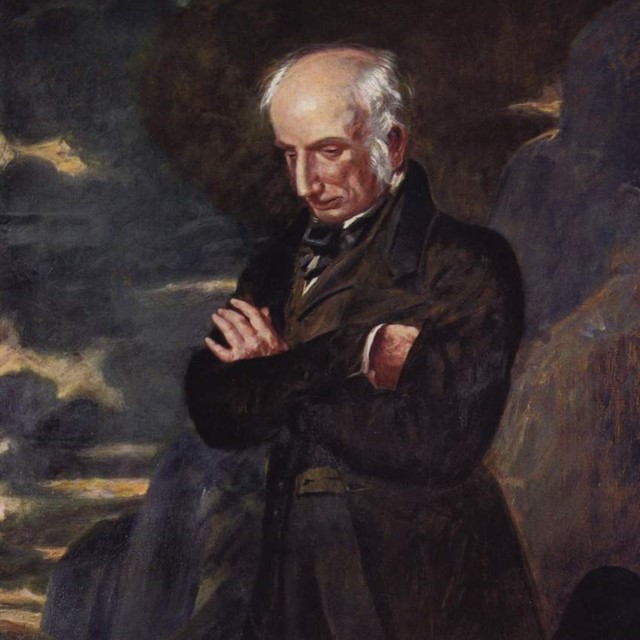
The Buckley School's founder believed all public speakers should hone their presentation skills by reading poetry out loud. We keep that worthwhile practice alive by including a poem in our magazine each month for you to read aloud. Above, William Wordsworth as painted by Benjamin Robert Haydon
Born April 7, 1770, William Wordsworth is central to the English Romantic literary movement. He is known for his love of nature and for capturing everyday speech patterns in his poetry.
Wordsworth spent much of his life in England's Lake District, with many of his poems making reference to this region. In 1810, he wrote a guidebook for travelers to the area, and he's said to be one of the reasons the Lake District is now thought of as a tourist destination—and even referenced in a Taylor Swift song.
Below, Wordsworth expresses his feelings about industrialization and its impact on the natural world, in a sonnet for you to read aloud.
The World Is Too Much With Us
The world is too much with us; late and soon,
Getting and spending, we lay waste our powers;—
Little we see in Nature that is ours;
We have given our hearts away, a sordid boon!
This Sea that bares her bosom to the moon;
The winds that will be howling at all hours,
And are up-gathered now like sleeping flowers;
For this, for everything, we are out of tune;
It moves us not. Great God! I’d rather be
A Pagan suckled in a creed outworn;
So might I, standing on this pleasant lea,
Have glimpses that would make me less forlorn;
Have sight of Proteus rising from the sea;
Or hear old Triton blow his wreathèd horn.






